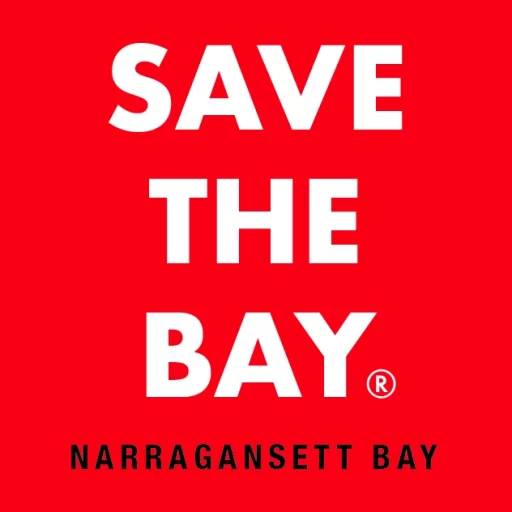Save The Bay’s 2022 Legislative Priorities
Jed Thorp, advocacy coordinator
During the 2021 Rhode Island legislative session, several bills passed that were important to Narragansett Bay: the establishment of the Ocean State Climate Adaptation and Resilience Fund (OSCAR,) the passage of the Act on Climate, the banning of the intentional release of helium balloons, and the creation of three legislative study commissions to which Save The Bay was appointed.
As we enter the 2022 session on January 4, we are optimistic for even more progress on the following legislative priorities:
Ensuring Funding for Environmental Protection
The Governor’s annual budget is always important to Save The Bay as it determines the level of resources and staffing available to the departments and agencies charged with protecting and preserving the state’s environmental and coastal resources.
DEM Budget
The Department of Environmental Management has seen its budget and staff cut dramatically over the past 20 years. These cuts have led to delays in permitting, reduced inspections of potential polluters, and lax enforcement of RI’s environmental laws and rules. Robust enforcement is needed to deter environmental crimes that pollute the water, air and land, and threaten public health. Save The Bay will be advocating for increased funding and staffing for DEM, particularly for permitting and enforcement.
| Fiscal Year | DEM FTE’s | Office of Compliance and Inspection FTE’s |
| 2000 | 570.5 | 45.0 |
| 2005 | 538.7 | 40.0 |
| 2010 | 402.5 | 25.0 |
| 2015 | 399.0 | 22.0 |
| 2020 | 394.0 | 24.0 |
CRMC budget
Much like DEM, CRMC is perennially underfunded and understaffed. CRMC has just two enforcement staff for the Ocean State’s 420 miles of coastline, and the demands on the agency continue to grow because of offshore wind energy projects and public access concerns. We will be advocating for more funding and staff at CRMC, particularly to help identify new shoreline access points and to protect existing rights-of-way to the shore.
Green Bond
Every time a “green bond” has been put before RI voters, it has received overwhelming support. (Rhode Islanders love the environment!) These bonds have led to critical investments in a cleaner and more resilient Narragansett Bay, and we will again be advocating for additional bond funding for clean water infrastructure and climate resilience projects that leverage millions of dollars in federal support.
Funding Climate Adaptation
The 2021 legislative session finally saw the passage of one of Save The Bay’s longtime legislative priorities: the creation of the Ocean State Climate Adaptation and Resilience Fund (OSCAR.) While the General Assembly established the fund – and the types of projects that would be eligible for funding through it – the actual funding mechanism (the proposed new nickel-per-barrel fee on petroleum imports) was stripped from the bill at the last minute. This year, we will again be advocating for the fee on petroleum imports as the best method for funding OSCAR, but will also be exploring other possibilities for seeding this critically important fund.
Protecting Shoreline Access
The public’s ability to access and freely move along the RI shoreline is very important to Save The Bay—in fact, it’s part of our organization’s vision of a “clean, healthy, fishable, swimmable Bay, accessible to all.” While the state constitution guarantees shoreline access and the “privileges of the shore,” conflicts often arise due to confusion over exactly how far inland the public’s shoreline rights extend. Save The Bay will again be supporting legislation that reaffirms and clarifies the public’s shoreline access rights.
Reducing Plastic Pollution
The General Assembly has considered several bills in recent years aimed at reducing the environmental impacts of various types of plastic waste, including grocery bags, straws, food containers and bottles. This year, we will be focusing our energy on the two bills that we think will have the biggest impact in reducing the plastic waste that continues to harm the Bay and inland water bodies.
Beverage Container Deposit Law (“Bottle Bill”)
Beverage container deposit laws (aka “bottle bills”) have proven to be an effective policy tool for increasing recycling rates and reducing the number of bottles polluting our environment. Many states – including our neighbors in Connecticut and Massachusetts – passed their bottle bills decades ago, and it’s time that Rhode Island joined them.
Extended Producer Responsibility (EPR)
Last year, Maine and Oregon became the first states in the country to pass “EPR” legislation for paper and plastic packaging, with several other states considering similar bills. Extended Producer Responsibility, or EPR, creates a system under which producers have a responsibility for the waste that occurs as a result of their products. (Think: the existing systems we have in RI for mattresses and paint.) Save The Bay will advocate for similar legislation here in Rhode Island.
Reforming CRMC
While the staff at the Coastal Resources Management Council do great work, the agency continues to suffer under the weight of an outdated and ineffective council structure. Save The Bay has called for eliminating the council, and putting CRMC on par with other state agencies like DEM, and will advocate for legislation that either overhauls the council structure or makes other much-needed reforms.

